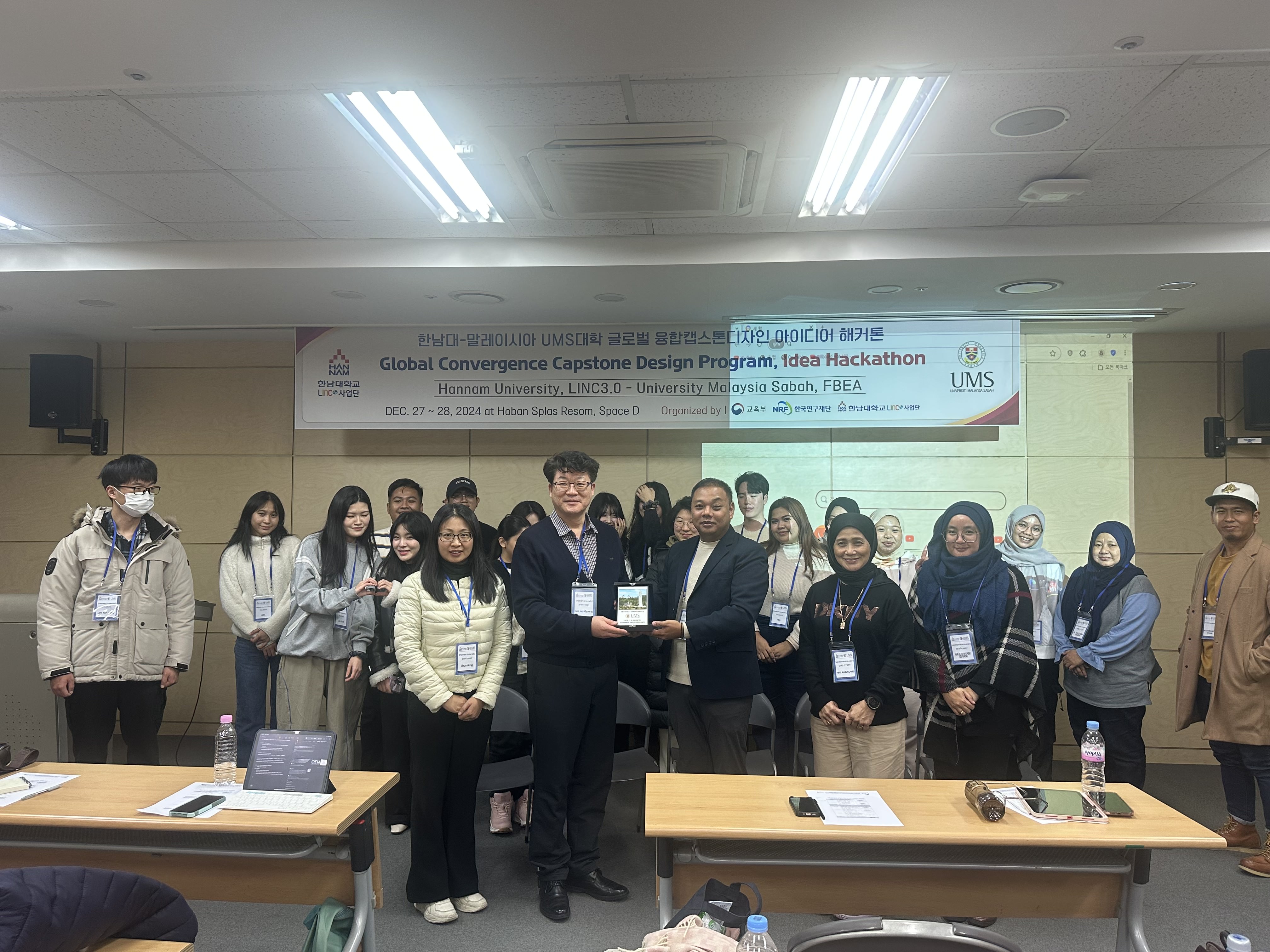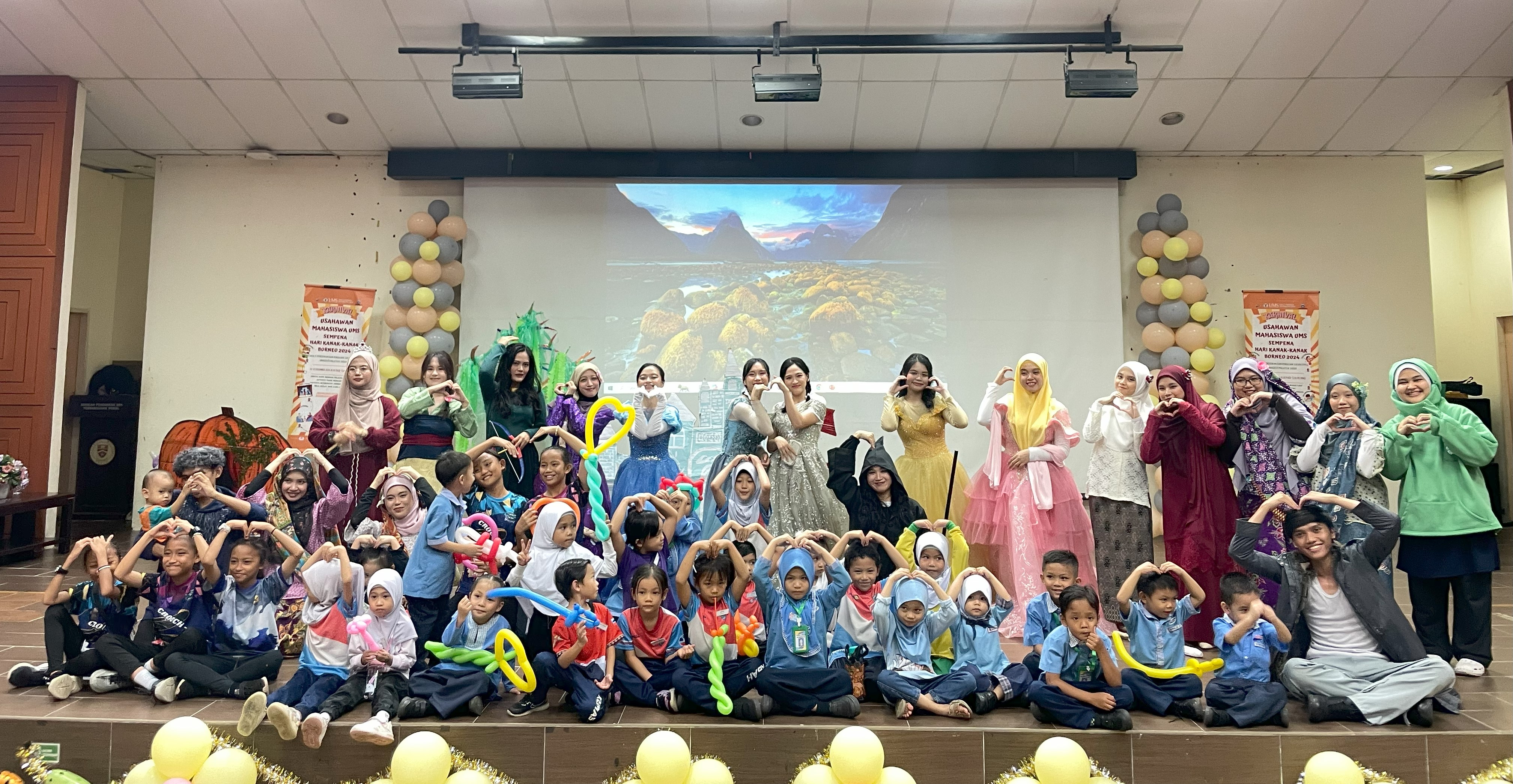 The Faculty of Business, Economics, and Accountancy (FBEA) Universiti Malaysia Sabah (UMS) concluded a remarkable 2024 by participating in the Global Convergence Capstone Design Programme held at Hannam University, South Korea.
The Faculty of Business, Economics, and Accountancy (FBEA) Universiti Malaysia Sabah (UMS) concluded a remarkable 2024 by participating in the Global Convergence Capstone Design Programme held at Hannam University, South Korea.
With the theme “Carbon Neutrality,” the program emphasized academic excellence, industry engagement, and cultural exchange.
The UMS delegation, led by the Head of International Mobility Programme, Datu Razali Datu Eranza, included FPEP Senior Deputy Registrar, Awina Kamis; Head of International Business Programme, Dr. Nur Aleysa Chew Tze Cheng; and FPEP staff member, Arnah Sanuddin.
They were warmly welcomed by LINC 3.0 Project Director, Prof. Gu-Hwan Won, who underscored the importance of global collaboration in education during their meeting.
More than 25 participants from UMS and Hannam University took part in the program, which featured various lectures on carbon neutrality and global business trends. Highlights included Datu Razali’s talk on “Future-Proofing Workplaces: Carbon Neutrality and Global HR Trends,” Prof. Chen Hong’s lecture on “Export and Import,” and Dr. Nur Aleysa’s presentation on “Carbon Neutrality in International Business.”
The program also included industrial visits to innovative Small and Medium Enterprises such as PumpCare, which focuses on sustainable energy operations; Water Genesis; and the Daejeon City Subway Organization, offering participants insights into sustainable practices and the latest technologies.
Additionally, participants joined Korean cultural workshops, traditional food-making activities, and the “Sabah-Daejeon Cultural Night,” which fostered closer ties between the two institutions.
The program concluded with special lectures by JeuDérm CEO, Tatyana Jeon and Professor Dr. Gilbert M. Tumibay from Woosong University.
Meanwhile, FPEP Dean, Assoc. Prof. Dr. Mohd Rahimie Abd Karim, expressed gratitude to Hannam University for organizing the program.
He also commended the efforts of key contributors, including FPEP lecturers Assoc. Prof. Mat Salleh Ayub and Datu Razali, as well as Hannam University’s Prof. Peter Lee, for their collaboration and commitment to the program’s success.
“This program not only addresses global issues like carbon neutrality but also builds strong academic and cultural bridges.
“It also reflects FPEP’s dedication to advancing global academic excellence,” Rahimie said.
In other developments, FPEP was once again recognized as the recipient of the Most Active Mobility Programme Award for the eighth consecutive year, while Prof. Peter Lee received a special commendation from South Korea’s Ministry of Education for his contributions to international academic collaboration.






